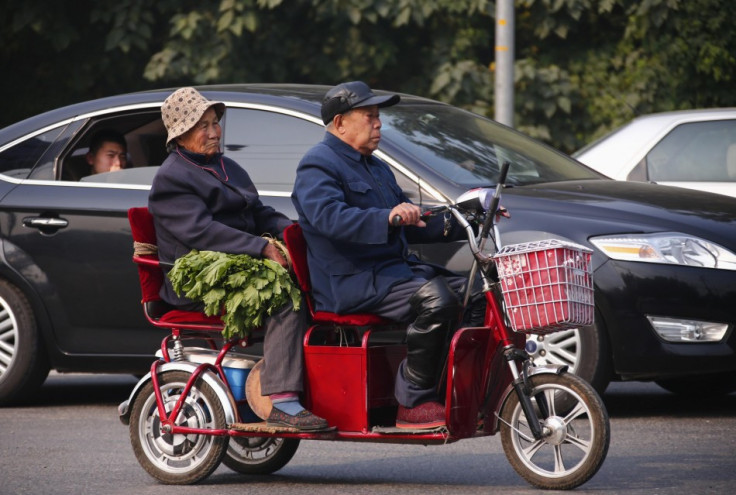Ageing China May Announce Pension Reforms Imminently

China could announce long-awaited reforms to its pension system during October, a move already delayed by some 15 years according to one research report.
The overhaul could include merging state and private sector employee pension systems; raising the country's retirement age in order to reduce the financial burden on the pension bill; and altering how the private sector schemes invest their funds, reported Reuters, quoting unnamed people privy to ongoing government discussions.
Taking away the private sector pension schemes from local government control could figure in the first wave of pension reforms, according to Reuters' sources.
A centralised pension fund would be easier to manage and would result in the even distribution of funds to provinces, analysts say.
However, civil servants could resist the move.
Failure to make changes now could lead to disastrous consequences in the future. By 2035, some two to three Chinese workers will have to support one dependent, according to a recent report by Qinghua University.
An unaltered system could face a 68.2tn yuan (£6.92tn, €8.19tn, $11.2tn) pension shortfall by 2033, Deutsche Bank estimated in 2012. The bank forecast that anticipated liabilities would exceed assets by 18.3tn yuan by 2013.
Zheng Bingwen, the director of the World Social Security Research Centre at the Chinese Academy of Social Sciences, an influential government think-tank, said centralisation would be the "slackers' option" and that deeper structural reform was the need of the hour.
"Which of these two paths the government ends up taking depends on the determination of policymakers," he told Beijing News on 16 October.
"There's no way that if the system doesn't change the problems won't get worse," said Dong Keyong, Dean of the School of Public Administration at Renmin University. "The system won't be able to cope. It will change."
A Disparate System
At present, China operates four pension streams with vastly unequal payouts.
The most liberal stream is reserved for civil servants and employees of state institutions - here workers could receive about 70% to 90% of their final salary at retirement without making any contributions.
Private sector employees get just 50% to 60%, regardless of the combined 28% salary contribution made by the employer and the employee.
Two different programs dole out pensions to urban and rural residents, with both providing basic payouts only.
Reforms Push
China's leaders want to guide the world's second largest economy away from debt-driven investments, in infrastructure and property, and towards a more sustainable path.
Beijing has announced measures to reduce red tape countrywide and implemented a series of market reforms to boost economic growth, which is expected to hit a 23-year low this year.
However, the government is treading with caution, when it comes to radical reforms. Analysts from top government thinktanks say the room for reform is limited in China as any dramatic shift in policy could exacerbate a growth slowdown and push the government to revert to tightly controlled market conditions.
© Copyright IBTimes 2024. All rights reserved.






